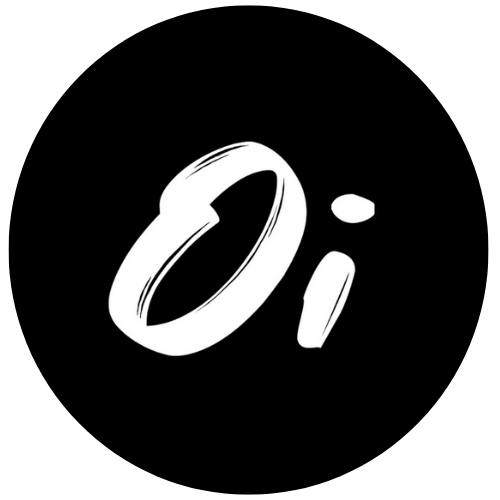Factories We Can Trust
Before working with any manufacturers, we ensure that they hold credible certifications to prove their commitment to ethical working environments. This includes a safety-first approach, fair pay, respect for all employees, and acknowledgement of their rights.
You can learn more about these certifications below!
We have also scouted our factory partners both independently and at ethical trade shows, and it is important to us to make an effort to get to know, meet and, when possible, visit our factory partners too.
It is so important to us to work with factories that share our commitment to excellence - not just in the amazing products they create for us, but in their attitudes and actions towards the people who create them to.
The People Behind The Production

People
We are passionate about the people who make our clothing and iconic hats so we ensure that we get to know and establish relationships with the workers in each factory.

Products
Our factory partners do a phenomenal job at creating our products from scratch. We work closely with them to get the fit, fabric and look just right before it goes into production.

Perfecting
Our factory partners are pros at perfecting the finer details of every product. From the zips to the toggles and even the hems, we trust our factories to make every little detail matter.
Reliable, Trusted and Certified
Each of our factory partners hold a range of certifications that keep them accountable to high standards of ethical and sustainable practices. Each factory is regularly assessed to ensure that are upholding the standards set by their respective certification bodies. For OutsideIn, this gives us peace of mind that our factory partners share our values for treating people with dignity, equality and respect.
All of our factory partners hold a range of certifications from the ones listed on this page. You can learn more about what they stand for below!
Certifications Held by Our Factory Partners
Business Social Compliance Initiative (BSCI)
The Business Social Compliance Initiative (BSCI) is a non-profit organisation. It was set up as an initiative of the Foreign Trade Association in response to the debate on how to achieve convergence in the field of corporate social responsibility. It implements the principle international labour standards such as International Labour Organisation (ILO) conventions and the United Nations (UN) Guiding Principles on Business and Human Rights (UNGPs) and guidelines for the Organisation for Economic Co-operation and Development (OECD).
Organic Content Standard
The Organic Content Standard allows for transparent, consistent and comprehensive independent evaluation and verification of organic material content claims on products. This standard ensures that what we sell is high-quality, organic material - ensuring you that you get what you pay for.
Global Organic Textile Standard (GOTS)
The Global Organic Textile Standard (GOTS) was developed through collaboration by leading standard setters with the aim of defining requirements that are recognised world-wide. It further ensures the organic status of textiles from harvesting of the raw materials through environmentally and socially responsible manufacturing, all the way to labelling.This ensures that credible assurance is provided to the consumer.
Oeko-Tex (Sustainable Textile Production)
Oeko-Tex (Sustainable Textile Production) is a worldwide certification system for environmentally friendly and socially responsible production facilities in the textile and clothing industry. If a textile article carries the ‘STANDARD 100’ label, you can be certain that every component of this article, i.e. every thread, button and other accessories, has been tested for harmful substances and proven harmless for human health. The test is conducted by our independent OEKO-TEX® partner institutes on the basis of our extensive OEKO-TEX® criteria catalog. Numerous regulated and non-regulated substances which may be harmful to human health are taken into account during testing. In many cases the limit values for the ‘STANDARD 100’ go beyond national and international requirements.
Supplier Ethical Data Exchange (Sedex)
The Supplier Ethical Data Exchange (Sedex) is a not-for-profit membership organisation for businesses committed to the continuous improvement of ethical performance within their supply chains. Sedex was founded in 2001 by a group of UK retailers to drive convergence in social audit standards and monitoring practices.
SGS
Since consumers are constantly in close contact with textiles and clothing, the need for safety and quality is paramount. Thanks to SGS’s global network and expertise, they help satisfy these demands and others such as minimal environmental impact (e.g. compliance with REACH, the European Union’s regulation covering the Registration, Evaluation, Authorisation and restriction of Chemicals) – wherever you and your suppliers are based.
International Organization for Standardization (ISO)
An ISO factory is a factory that has been certified as complying with standards set forth by the International Organization for Standardization (ISO). This includes the factory management environment, methods of production, and production quality.
Worldwide Responsible Accredited Production (WRAP)
The Worldwide Responsible Accredited Production (WRAP) program is the world's most widely accepted independent certification for the apparel/textile, footwear and sewn products industry. WRAP monitors and certifies lawful, humane and ethical production.
REACH Certificate of Compliance
REACH Certificate of Compliance is a document certifying that a product is compliant with the EU REACH regulation (EC) No 1907/2006. It can be a testing report or statement issued by a third-party testing organisation. It could also be a self-declaration.
Global Recycled Standard (GRS)
The Global Recycled Standard (GRS) is to verify the recycled content of products (both finished and intermediate) and to verify responsible social, environmental and chemical practices in their production. Their objective is to define requirements to ensure accurate content claims and good working conditions, and that harmful environmental and chemical impacts are minimised. This covers processes such as ginning, spinning, weaving and knitting, dyeing, printing and stitching.
TÜVRheinland
TÜVRheinland means the product/machine has been tested for electrical safety, hazardous material components and unwanted noise production, and that the production facility has undergone an annual inspection.
Fair Wear Code of Labour Practices
The Fair Wear Code of Labour Practices is known for its strong provisions on freedom of association, hours or work and a living wage. FWF's labour standards include: payment of a living wage, no excessive working hours, safe and healthy working conditions.
Sustainability Progess
We recognise that we are in an industry that contributes to environmental waste, pollution and more. However, as a brand dedicated to purpose we are on a journey of becoming more sustainable across all aspects of OutsideIn.
While we acknowledge that we have a long way to go and that there's always room for improvement, we are committed to implementing more sustainable practices throughout our production and supply chain.
Here are some of the things we're doing to help us on this journey of becoming a more sustainable fashion business.
Reducing Our Fashion Waste
One of the small ways we implement sustainable practices day to day is by reducing our fashion waste. Like other fashion brands, we face the challenges of having dead-stock, damaged items and sample products. To avoid wasting these, we add these items that cannot be listed on our main store to our OutsideIn Thrift Store pop-ups at our Trademarket location. This helps us avoid fashion waste, and all profit we generate from these items gets funneled directly to our Social Impact Team and the work they do to support our Giving Partners.
Small Batches & Planning
We ensure our manufacturing quantities are carefully planned, placing smaller orders to avoid over-production. We also plan our fashion calendar in advance to give us more time to explore sustainable options for our two key seasonal launches (summer and winter) and our mini collections in between.
Designed to be Worn
We do not want to follow fast fashion trends so, instead, we focus on longevity and purposeful products. We design our products to fit an active, often outdoors lifestyle, ensuring that our clothing is durable and long-lasting. Our design process is customer-led instead of trend-led, meaning we select our fabrics and structures based on feedback from our customers and Giving Parters (we design and manufacture each item donated through our Wear One, Share One model. Learn more about this!)
For these fabrics, we choose sustainable materials such as natural or recycled fibres wherever we can. When this is not possible we will always prioritise fabrics which are durable and long-lasting to promote longevity of wear.
Designed With Intention
Not only do our products contribute to our core purpose of helping people experiencing homelessness through clothing, but we ensure that every item we design is created purposefully. This means that everything from the fit of the garment to its design and even the places it can be worn are kept in mind with each new creation. We gather feedback from our customers, our Giving Partners and our team to find out what they want in a product so that every item is intentionally designed to avoid producing items that rely on temporary trends. We want our products to be worn, loved and kept for a long time not just a season.
Slow Fashion vs Fast Fashion
What is the difference between 'slow fashion' and 'fast fashion'? Fast fashion is a term used to describe clothing that is low-cost, rapidly produced and based on temporary trends. Slow fashion on the other hand is the opposite. Slow fashion is a more sustainable way of producing clothing as it adopts sustainable practices where can, prioritises high quality items, smaller quantities and bases its designs on long-lasting customer desires and needs.
At OutsideIn we are on a journey that strives towards becoming as 'slow' as possible when it comes to our fashion. We want to create garments that will not simply fit a 'fashion fad' but ones that will outlast seasons because of their purpose, durability and long-lasting style.
Committed to Growth
On our journey to becoming more sustainable and furthering our efforts to promote ethical production in the fashion industry, we are open to learning from others who share these beliefs and passions. If you have any feedback or ideas for how we can improve and further our efforts, let us know via the button below.



